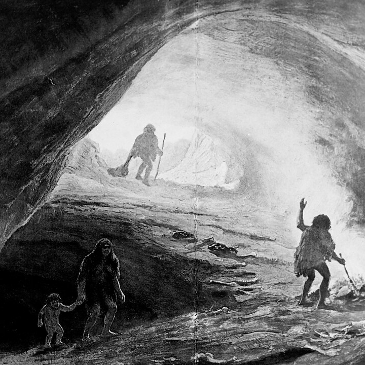Paul Saladino, a prominent figure in the world of YouTube health gurus, has emerged as a fanatical advocate for the ‘carnivore’ lifestyle. With a background in functional medicine, Saladino has garnered attention for his controversial views on diet and his unwavering commitment to an all-meat approach. But what does Paul Saladino eat, in reality? Well, he is maybe not as strict as some of these other carnivore oddballs …
What Does Paul Saladino Eat?
Celebrity carnivore connoisseur Paul Saladino eats a diet primarily of meat using the phrase “nose to tail” to describe his culinary habits. He will also eat lower sugar fruits, honey, avocados, lettuce, cucumber and squashes. He espouses various tiers of human carnivory with only tier 1 containing any quantity of the “least toxic” vegetables. Tier 5 can include “testicles” … Yum!
Watch: Red Pill Vegan on what Saladino actually eats in a day!
( bearing in mind Paul owns the company “Heart & Soil”, is it all b0ll0cks? )
Related: “Why Do Carnivores Not Get Heart Disease” (5 minute read)
What Is The Carnivore Diet Craze All About?
The carnivore diet is a meat-heavy eating approach that has sparked both fascination and controversy in the realm of nutrition.
Proponents of this unconventional regimen, people like Saladino, argue that our early ancestors thrived on animal flesh, thereby advocating for a return to our primal roots.
They champion a diet devoid of plant-based foods, where meat reigns supreme and many plants are treated at best as mere garnishes and at worst, as harmful to humans!
Yep, you read that right … we’ll get into the ‘anti-nutrient’ arguments later on.
This audacious dietary philosophy stands in stark contrast to mainstream nutritional advice, which emphasises the importance of a varied and balanced plate, rich in fruits, vegetables, and whole grains.
The carnivore diet, in its purest form, rejects the colourful array of plant foods, relegating them to the sidelines. Advocates claim that this bold departure from convention can lead to a plethora of benefits, including weight loss, improved mental clarity, and enhanced athletic performance.
Critics, on the other hand, raise valid concerns about the potential risks of such an extreme dietary pattern. They argue that excluding plant foods entirely may result in nutrient deficiencies, particularly in vitamins, minerals, and especially fibre.
Furthermore, they contend that long-term adherence to this meat-centric lifestyle may elevate the risk of chronic diseases, such as heart disease and certain types of cancer.
Thin On Detail – Heavy On Rhetoric
Once you get past the ‘celebrity’ aspect of carnivore where people seem to idolise figures like Saladino and Shawn Baker (another prominent carnivore) and start digging into the detail of what these people actually think the waters muddy pretty quickly.

They struggle to answer relatively simple questions like “Which group of human ancestors do carnivores think we should follow?” … in other words, how far back in time should we go to ‘rediscover’ our primal roots?
Because if you actually look at the scientific evidence out there, consumption of meat in large quantities was simply not a thing throughout most of human existence.
So where has this extreme diet fad come from?
Well, in Saladino’s case, his journey into the world of carnivory began with his personal health struggles. He claims to have experienced a transformation in his own well-being by adopting a diet mostly devoid of plant-based foods.
His self-proclaimed “carnivore cure” led him to explore the potential benefits of an animal-centric diet and delve into the controversial “ancestral health” space …
… a misnomer at best.
Through his writings, podcasts, prolific social media presence and not least, his supplements company, Saladino has become a polarising figure. He boldly challenges mainstream dietary guidelines, questioning the conventional wisdom that promotes the inclusion of fruits, vegetables, and grains.
Instead, he champions the consumption of animal products, arguing that they provide all the necessary nutrients for optimal health and vitality.
Saladino’s message, though provocative, has garnered a devoted following of individuals seeking an alternative path to wellness. But the experience of many of them has been less than optimal, shall we say.
However, his claims have also faced criticism from the scientific community. Detractors argue that his dietary recommendations lack substantial evidence and overlook the potential benefits of a varied and balanced diet that includes plant-based foods.
What’s All This “Plants Contain Anti-Nutrients” Bunkum?
In the overly crowded space of dietary recommendations, human carnivores often harbour a peculiar belief that plants contain anti-nutrients.

This perspective, although unsubstantiated by scientific consensus, stems from a critical examination of certain plant components that may exert mild inhibitory effects on nutrient absorption. It is crucial to scrutinise this contention objectively and dispel any misconceptions surrounding the nutritional value of plants.
The notion of plants harbouring anti-nutrients primarily revolves around substances such as phytates, lectins, and oxalates.
Phytates, for instance, are naturally occurring compounds found in grains, nuts, and seeds that can interfere with the bioavailability of certain minerals, impeding their absorption. Similarly, lectins, present in legumes and other plant foods, have been associated with potential digestive disturbances when consumed in excessive quantities.
Furthermore, oxalates, prevalent in leafy greens and certain vegetables, can form insoluble compounds that may hinder calcium absorption, leading to concerns about kidney stone formation.
However, it is vital to note that the presence of these components does not inherently render plants harmful or nutritionally deficient.
In fact, plants offer an array of essential nutrients, including vitamins, minerals, fibre, and phytochemicals that promote optimal health. Moreover, the potential adverse effects of anti-nutrients are mitigated through cooking, soaking, fermentation, and proper food preparation techniques.
While human carnivores may hold reservations regarding plant-based foods due to the notion of anti-nutrients, it is essential to approach these claims with critical thinking and scientific evidence.
Two things which are in short supply in the carnivore world!
Incorporating a diverse range of plant foods into one’s diet, whether you’re vegan or not, ensures a well-rounded intake that maximises health benefits while minimising any potential drawbacks.
Why Vegans & Carnivores Will Never Agree
If you’ve ever witnessed a face-off between a committed carnivore and an equally committed vegan you’ll know it rarely ends well. Human carnivores are the nemesis of our plant-powered utopia.
 Most vegans look upon human carnivory with a mixture of bewilderment and disdain. It’s not hard to see why. What’s really weird is some of these carnivore oddballs actually think their lifestyle is more vegan than a vegan’s!
Most vegans look upon human carnivory with a mixture of bewilderment and disdain. It’s not hard to see why. What’s really weird is some of these carnivore oddballs actually think their lifestyle is more vegan than a vegan’s!
How someone ends up reasoning themselves into that misguided position is actually beyond me but they will cite “crop deaths” as their proof … utter drivel of course.
In our article “Why Veganism Is Bad For Animals” we take a closer look at this argument and I hope, in a more rational way than people like “Carnivore Aurelius” do.
( Google him if you want a giggle … )
Vegans and carnivores will never agree because the gulf between ethical standpoints is too vast. Vegans, with an unwavering commitment to animal welfare, view human carnivorous habits as a direct violation of our moral compass.
Despite these minor grifters like Saladino and Baker who claim to exclusively buy grass-fed, grass-finished beef, most followers of this tangential diet pick up their meat off the shelf in the supermarket. Hardly “nose to tail”.
 Simply through buying and consuming animal flesh, they are driving the demand which perpetuates a system of extreme cruelty and increasing environmental degradation.
Simply through buying and consuming animal flesh, they are driving the demand which perpetuates a system of extreme cruelty and increasing environmental degradation.
Moreover, the health risks associated with excessive meat consumption are very well documented. Could all of this expert evidence be wrong, as Saladino seems to be suggesting?
You will find endless studies linking red and processed meats to an increased risk of heart disease, cancer, and other chronic conditions. The choice to prioritise animal protein over plant-based alternatives is a reckless disregard for their own wellbeing, apart from anything else.
But you can’t ignore the fact that Saladino and Baker appear to be in good health, on the face of it. This lends more weight to their carnivore diet health claims but one must wonder what problems they are storing up down the line. It’s a brave new world and early days for the carnivore movement.
Unlike most of their followers, both these social media darlings have forged a lifestyle, through various enterprises, which allows them to spend a good amount of time getting plenty of exercise, for one. This will help delay the negative effects of all that animal protein and fat.
Veganism is 4000 years old … let’s see how far the carnivores get.
Veganism Is Not a Diet – Choose Compassion
Human carnivores have chosen that particular diet, for good or for ill … likely the latter.

By contrast, vegans have not chosen a diet. You could even say (without wanting to sound too pompous) the diet has chosen them.
It is the ethical position taken against animal exploitation which dictates the type of food a vegan will eat. Yes, people talk about a vegan diet all the time but it is not a diet, in the weight loss sense of the word.
Of course a vegan’s diet will consist of non-animal based foodstuffs and it is this we are referring to when we discuss the “vegan diet”.
We utterly reject the system which sees 80+ BILLION land animals slaughtered for their flesh every year. With demand for meat only increasing, this means even more animals will be born into a short life of abject abuse, the only relief being when the knife goes in.
If you are going to be a true animal lover in the 21st century then the only option is to go vegan my friends … simple as that. You have the purchasing power and you drive the demand.
Human carnivory is not going to get us over the line … or anywhere near it.
Choose the evolution of the human race. Choose veganism.
I hope we’ve helped answer your question today … we always respond to comments below so go ahead and submit yours. Please give us a social share as well. Use the icons top and bottom to spread the word!
To finish up, if you enjoy the articles here at Vegan Slate and would like to know when we publish, then please join our new post alerts mailing list. We’ll email you when another piece is sent into the ether … and we never spam; it’s not vegan!
Thanks so much for reading and have a peaceful day.
Rohan.
Caveman painting : By Leo Wehrli – This image is from the collection of the ETH-Bibliothek and has been published on Wikimedia Commons as part of a cooperation with Wikimedia CH. Corrections and additional information are welcome., CC BY-SA 4.0.
